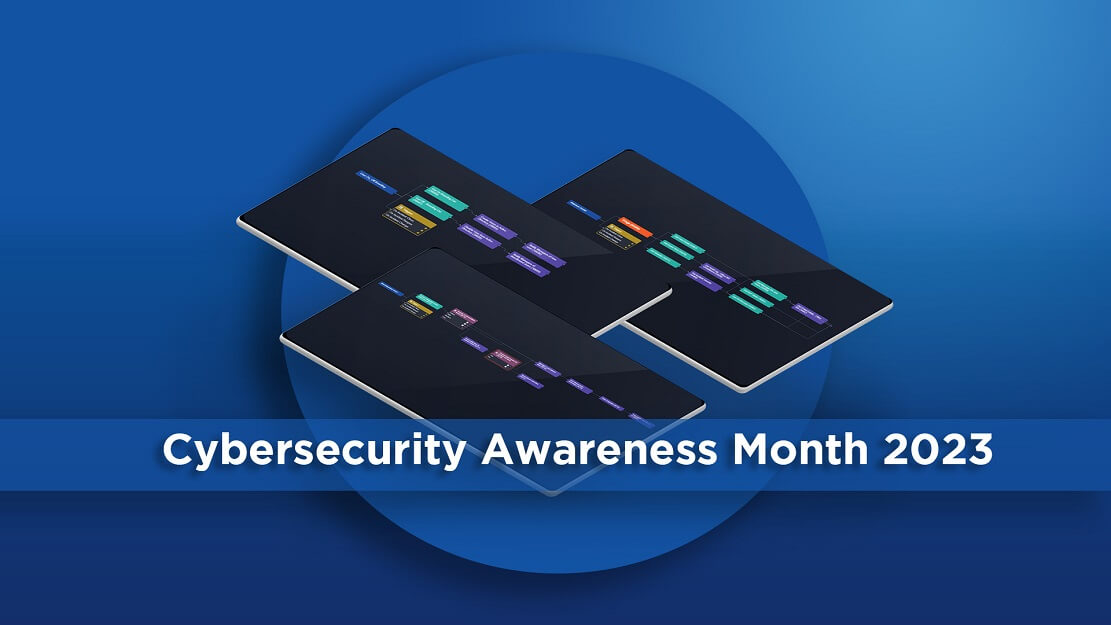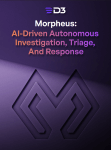As we celebrate Cybersecurity Awareness Month in 2023, the importance of fortifying our digital defenses against ever-evolving threats cannot be overstated. This year, the focus revolves around three critical pillars: improving authentication, detecting phishing emails, and addressing legacy systems that require patching. One key technology that can greatly aid in achieving these objectives is Security Orchestration, Automation, and Response (SOAR). In this article, we will delve into the significance of these pillars and explain how SOAR solutions can be instrumental in enhancing cybersecurity.
The Role of SOAR Solutions
Security Orchestration, Automation, and Response (SOAR) solutions have emerged as a game-changer in the cybersecurity landscape. These platforms offer end-to-end security incident management, automation of routine tasks, and improved coordination between security teams.
For mature security teams or MSSPs (managed security service providers), SOAR solutions are a force multiplier, streamlining security operations and enabling teams to respond more effectively to cyber threats. These organizations can leverage the advantages of end-to-end SOAR solutions to create a cohesive security infrastructure.
However, smaller, less mature organizations often face challenges when it comes to SOAR adoption. Many SOAR solutions lack a robust case and incident management layer, making it difficult for smaller organizations to effectively utilize these platforms. This limitation can hinder their ability to respond to and mitigate cyber threats efficiently.
In the realm of SOAR solutions, an end-to-end approach that includes robust case and incident management is paramount. In contrast, SOAR solutions lacking end-to-end incident management capabilities can lead to confusion and inefficiency. Incidents may go unresolved or be mishandled, leaving organizations vulnerable to cyber threats.
The Importance of Equality in Security Services
In the world of cybersecurity, it’s no secret that global corporations tend to prioritize their cash cows—the large-revenue customers—by providing them with dedicated support teams, faster response times, and tailored solutions. Smaller customers, on the other hand, may find themselves overlooked or underserved, which can have dire consequences for their security posture. The implications of this disparity are significant. Smaller customers may face longer downtimes during cyber incidents, slower resolution times, and fewer resources available to address their specific needs. In contrast, large-revenue customers enjoy a more proactive and personalized approach to cybersecurity support.
Cybersecurity Awareness Month reminds us that everyone deserves strong protection against cyber threats, regardless of their revenue.
SOAR solutions offer the advantage of automation, enabling organizations of all sizes to respond to threats swiftly and effectively. They can streamline incident response processes, making it possible for smaller businesses to manage security incidents with the same efficiency as their larger counterparts.
SOAR solutions, like any technology, can also face this challenge of maintaining equality across organizations of different sizes. Smaller organizations may need more resources to build and maintain complex integrations with third-party software, whereas larger enterprises often benefit from large internal development teams. This discrepancy can result in security gaps for smaller customers who may struggle to integrate various security tools effectively. The associated risk for smaller teams is higher, as they may need more expertise or resources to ensure integrations are performant, secure, and up to date. Global corporations often prioritize building and maintaining integrations for their most significant customers, while smaller customers are left to fend for themselves or rely on community-supported solutions.
However, vendor-provided, maintained, and optimized integrations can benefit both types of customers alike and remove this burden in its entirety; as they are well-optimized and supported by the vendor, they offer ease of use, and may require less ongoing maintenance.
In the spirit of Cybersecurity Awareness Month, it’s crucial to emphasize that security services should be equally accessible to all organizations, regardless of their size or revenue, for solution providers. Cyber threats do not discriminate based on the size of the target, and every organization deserves the same level of protection.
Closing the Gap with SOAR
The pillars we are focused on for Cybersecurity Awareness Month are authentication, phishing email detection, and identifying legacy systems that require patching. These challenges can be effectively addressed with the help of SOAR solutions.
For both small and mature security teams alike, SOAR platforms provide a centralized hub for managing security incidents, automating response actions, and orchestrating complex workflows. They enable organizations to enhance their authentication processes, detect and respond to phishing attempts swiftly, and prioritize the patching of legacy systems.
Bridging the gap between small and large teams requires a more equitable approach to support services and a focus on empowering all customers with the capabilities of SOAR solutions. Let’s look at a few example scenarios:
1. Strong Authentication and Multi-Factor Authentication (MFA)
Strong authentication, through robust passwords and MFA, forms the foundation of a secure digital environment. Passwords are often the first line of defense against unauthorized access. Weak or easily guessable passwords can lead to devastating breaches. SOAR solutions can assist in enforcing password policies, ensuring that employees use complex, unique passwords, and prompt them to change them regularly.
Moreover, SOAR solutions can seamlessly integrate MFA into the authentication process. With MFA, even if an attacker obtains a user’s password, they cannot gain access without the secondary authentication factor, such as a fingerprint scan or a one-time code sent to a mobile device.
Example: A company implements a SOAR solution that integrates with its existing identity management system. When an employee logs in from an abnormal location, the SOAR solution triggers an MFA request, enhancing security significantly.
2. Detecting Phishing Emails
Phishing attacks continue to be a pervasive threat, with cybercriminals using increasingly sophisticated tactics and automated resources. SOAR solutions can play a vital role in leveling the playing field, detecting and responding to phishing emails promptly and fully “automagically”. They can analyze email content, sender information, and attachments to identify potential phishing attempts.
Example: An employee receives an email with a suspicious link. The SOAR solution automatically scans the email, potentially sandboxes different contents like attachments, URLs, and evaluates the trustworthiness of the sender across different threat intelligence providers and data points to identify if this is indeed a legitimate email. If identified as a phishing attempt, the SOAR platform uses your entire security stack and quarantines the email, evaluates the wider impact, and removes other emails in other mailboxes if this was part of a campaign, while also potentially alerting the security team.
3. Patching Legacy Systems
Legacy systems often pose a significant security risk due to outdated software and unpatched vulnerabilities. Identifying and patching these systems is crucial to safeguarding an organization’s digital assets. SOAR solutions can automate the detection of legacy systems and prioritize patching based on risk assessments.
Example: The SOAR solution performs scheduled scans across your network, identifies an old legacy system running unpatched software, and automatically initiates a patching process, reducing the vulnerability exposure.
Conclusion
As we navigate the complex and ever-changing landscape of cybersecurity, it is imperative to prioritize strong authentication, detection of phishing emails, and patching legacy systems. SOAR solutions, with their automation and orchestration capabilities, can significantly bolster an organization’s cybersecurity posture in these areas. However, it’s essential to opt for end-to-end SOAR solutions with robust incident management features to maximize their effectiveness.
Furthermore, we must advocate for equality in security services, ensuring that all organizations, regardless of size, receive the same level of protection and support. By doing so, we can collectively strengthen our cybersecurity defenses and mitigate the risks posed by cyber threats. This Cybersecurity Awareness Month, let’s commit to working together to build a safer digital world for everyone.




